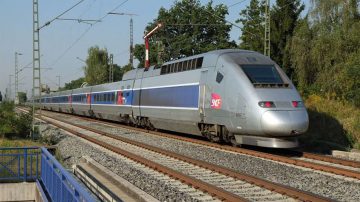
Passengers using UK rail remain well below pre-Covid levels and there appears to be no recovery in sight.
Every day on social media passengers tweet photos of near-empty trains both on mainline and metro routes.
This example is from food writer Joanna Blythman and relates to a mainline LNER service yesterday.
Don’t feel scared to use #trains. Quiet, hyper-clean, very few passengers. @LNER pic.twitter.com/bFWJ5PN0is
— Joanna Blythman (@JoannaBlythman) September 28, 2020
Another from BBC news correspondent Danny Savage is from a peak hour Leeds-Manchester Transpennine Express yesterday.
0815 Leeds to Manchester @TPExpressTrains on a Monday morning. pic.twitter.com/bq0TCnm5oX
— Danny Savage (@dannysavage) September 28, 2020
Now Sir Peter Hendy CBE, chairman of Network Rail, confirms what some of you may already have suspected. It is that Saturday has become the busiest day of the week for UK rail travel.
“Leisure travel has returned quicker than work travel,” says Sir Peter.
His statement relates to the decline in peak hour Monday-Friday commuting and that corporate travel remains well below previous levels.
Indeed some companies have stopped all business travel at the present time.
Growth in peak hour commuting will either remain subdued or will decline further so long as the government advises citizens to work from home wherever possible. There are also fines of up to £6,400 for those who do not wear face masks.
One wonders for how long our government will continue to spend several billion to subsidise these sparsely-filled trains.
Note: Currently all train operating companies (TOCs) operate under emergency measures whereby the government collects the fares and funds their costs of operation. Open access operators like Grand Central and Hull Trains receive no government funding. (The latter are not classified as TOCs). LNER is a government-managed TOC.












